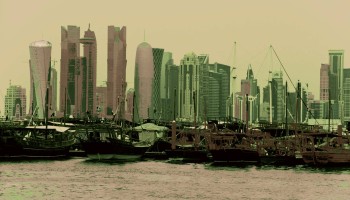“I adore it when we export arms because it is a pure influx of foreign currency,” Vucic told a press conference in Belgrade on Monday.
The Organized Crime and Corruption Reporting Project (OCCRP) and the Balkan Investigative Reporting Network (BIRN) revealed last month that Central and Eastern European countries, including Serbia, have exported at least €1.2 billion (US$ 1.35 billion) in arms to Middle Eastern states sponsoring Syria’s armed opposition.
The bulk of the deals, totaling €829 million, were made with Saudi Arabia.
The amount that came from Serbia was €136.1 million. The bulk of that came in 2015, when the government approved a series of sales to the Saudis worth €135 million.
Vucic told reporters he did not know why the deal was approved just two years after a 2013 proposal to ship a smaller amount of arms to the kingdom was blocked by the defense ministry – which he headed at the time – on fears they could end up with rebels.
Vucic told the press conference that in 2013, while he was Minister of Defense, he “probably received” intelligence that the arms could end up in Syria.
“Do not ask me what has changed,” he added. “In 2015, I was not Minister of Defense and I can’t know (what happened). I will take a look.”
He argued that the arms industry was proving a boon to the Serbian economy. “It is one of the industries from which we earn a lot,” he said. “I want to increase it even more, to earn even more.”
The OCCRP and BIRN investigation found exporting countries - Bosnia and Herzegovina, Bulgaria, Croatia, Czech Republic, Montenegro, Romania, Serbia and Slovakia - granted export licenses despite ample evidence that many weapons are ending up in Syria with armed opposition groups, including Islamists, who have been accused of widespread abuses.
Arms trade and human rights experts have said the arms sales are probably illegal.
The investigation, also published in The Guardian, has sparked reactions from heads of states and senior officials.
On Friday, Slovakian Prime Minister Robert Fico responded to the investigations by arguing that: "If we won't sell, someone else will".
The European head of UN High Commissioner for Refugees, Vincent Cochetel, pointed out on Twitter that the countries’ arms exports are helping fuel the flow of refugees into Europe, but that some of these same countries have taken steps to block the flow of asylum seekers.






